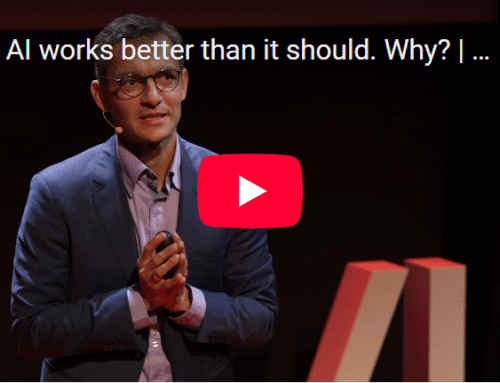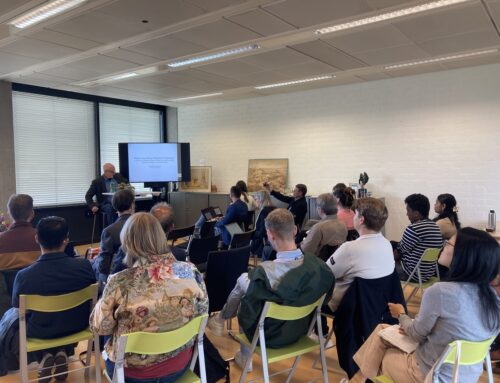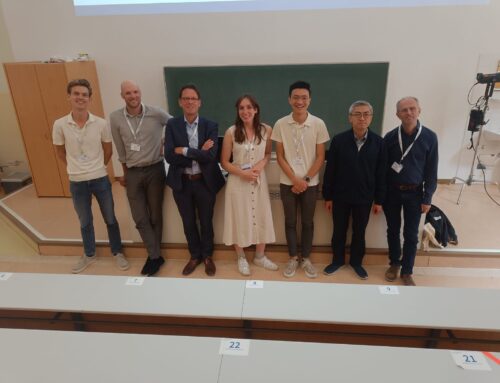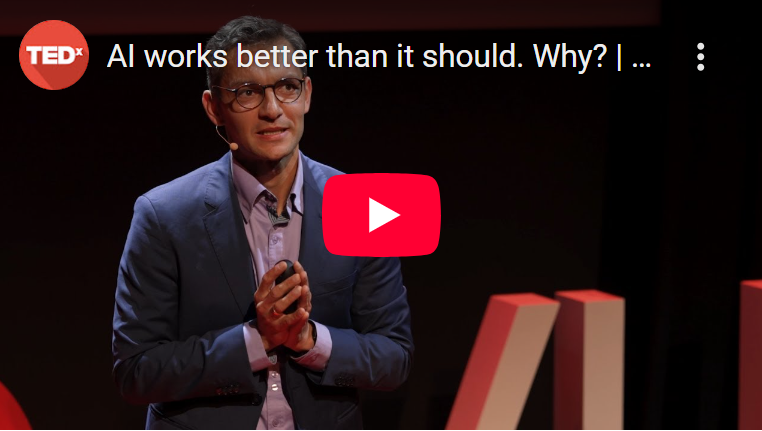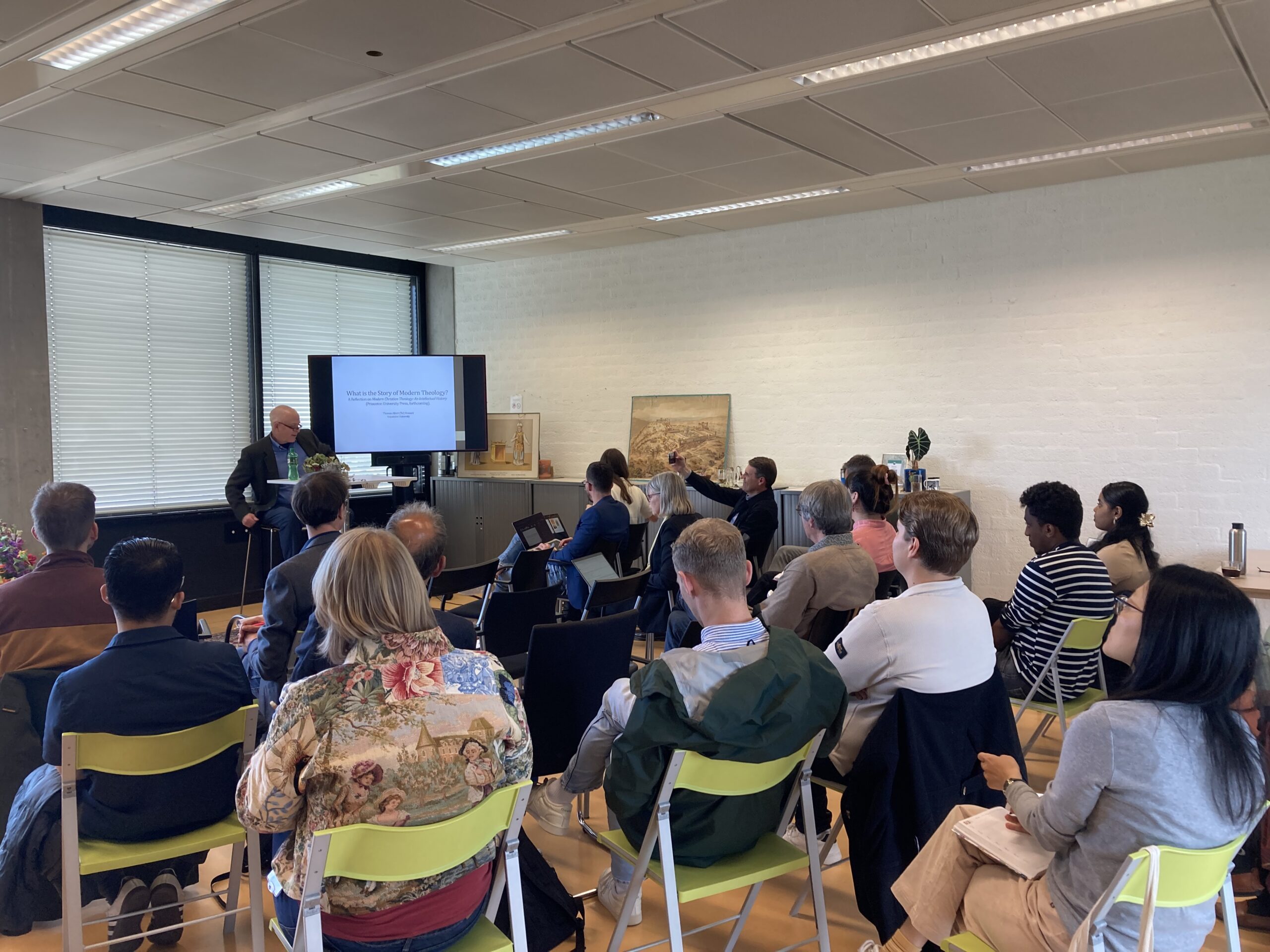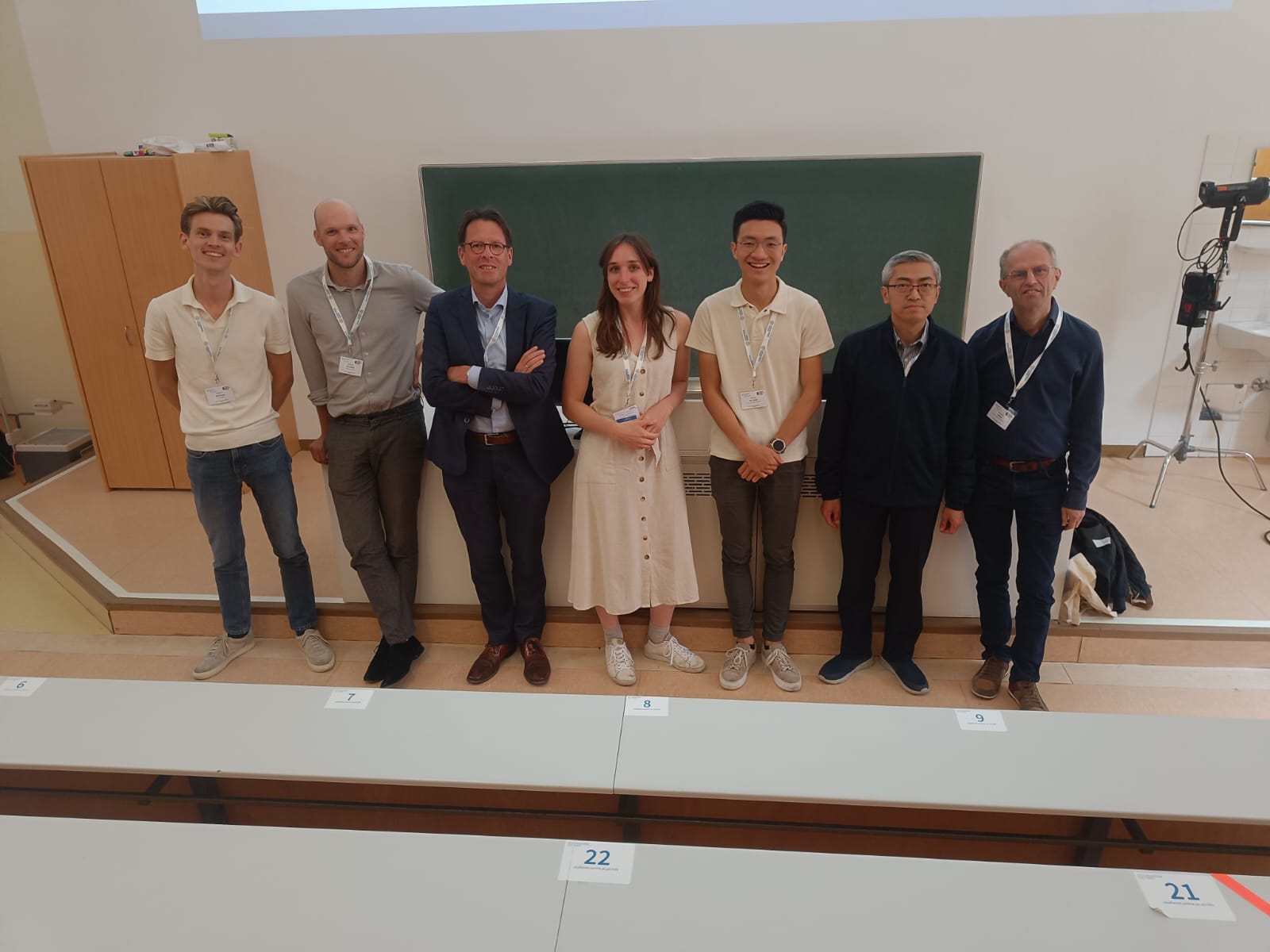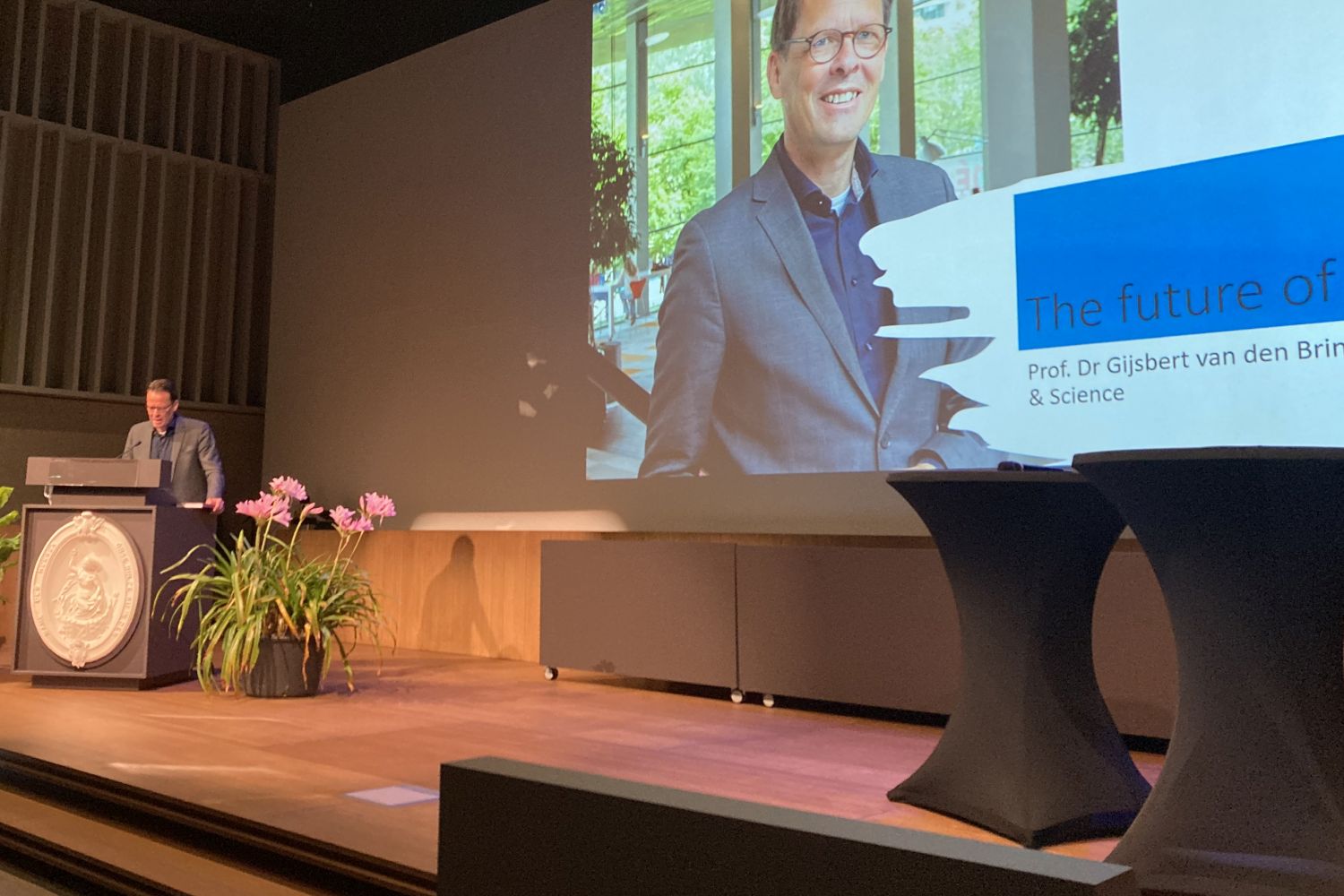
Professor Gijsbert van den Brink shed his light on the future of academic theology.
“Now I am sure this is a topic about which many of you have their ideas. Some of us have devoted articles, or even entire books, to it. So I am not pretending to offer the one and only perspective today. I realize that my positionality as a white Western Protestant theologian will impact my viewpoint. Yet I will try to be as inclusive as I can. Please feel free to let me know if I insufficiently succeed in doing so.
The reason I was asked for this is that I have the privilege to chair the newly established project group FOAT, which stands for the “Future Of Academic Theology” and comprises quite a number of senior and junior staff members from within and outside our Faculty. Two PhD-students in our group, Michiel Bouman and Marieke van der Linden, have designed a project website that will be launched soon. In FOAT we follow up on a recommendation of the 2018 Research Assessment Committee, which suggested that our Faculty is uniquely situated to take the lead in rethinking the status of theology in relation to its three fora or publics, as these have famously been defined by Catholic theologian David Tracy: the academy, the religious community, and society at large. Our next step as FOAT will be to organize a symposium on the occasion of the farewell of one of our founding members, Matthias Smalbrugge, which will take place in January.
What exactly do we mean by “theology”? The 2015 report of the Royal Dutch Academy of Sciences “Klaar om te wenden” defines it as the discipline that has thinking about God as its object. It seems to me that that is too limited. Medieval theologian Thomas Aquinas was more to the point when he described theology as “the study of God, and of everything in the light of God”. So but it can have virtually everything as its object: politics, economics, aesthetics, ecology – you name it. But its specific take on each of these fields, the basic assumption of its paradigm, is that of transcendence – or that of etsi Deus daretur: what if God existed? For example, theologians can ask questions like ‘What would it mean for our ecological sensitivity to seriously see the world as God’s creation? What difference would it make to see it as destined to become God’s home?
Now of course, as soon as we mention God all sorts of questions arise (questions which theologians are happy to discuss 😊). What God do we have in mind, and does one need to believe in God in order to be a theologian? Or could theology be defined in more inclusive ways? I think it can. The notion of transcendence is already more encompassing, since it incorporates non-theistic notions of the divine like those of Eastern religions. But even if you don’t believe in some transcendent realm at all, gods are all around you. The 16-century German Reformer Martin Luther, who ushered in the tradition of Protestantism, famously wrote that ‘whatever you put your trust in, that is your God’. In line with this seminal insight, theologians have critically examined all sorts of cultural placeholders for God, such as Mammon, the God of money. What happens if making money becomes our primary determinant of meaning, to use an expression of my Doktervater the late Vincent Brümmer? Theologians are interested in such questions, as they are in the role of ideologies (which often function as pseudo-religions). Taken in its broadest sense, theology is about how to envisage a meaningful life. Or, using a phrase of Kroatian theologian Miroslav Volf, it’s about what makes life worth living, and what sources can be drawn on to answer such a question. At the end of the day, it is a thoroughly hermeneutical enterprise. That is: it is all about meaning; from the exegetical meaning of tiny pieces of holy text to the meaning of life…
Now I don’t think it is necessary to apologetically defend that there is still an academic future for such theology. Quite some work has recently been done that highlights its academic credibility. It turns out that in principle theology follows the rules of the game in the humanities. As we have tried to show in a recent volume, it even makes progress. Rik Peels gives a lot of examples of new insights, methods, fields, and of falsehoods that have been corrected; and Marius Dorobantu elaborates how even current developments in AI will lead to progress in theology. Similarly, others of us have argued for the necessity of academic theology. Katja Tolstaja, for example, did so recently in a thought-provoking piece in NRC Handelsblad, in which she analysed the role of religion in the Russian war against Ukraine and highlighted from there the crucial importance of theological analysis. In line with this, in his book Radical Theology (2016), the Swiss theologian Ingolf Dalferth (b. 1948) has argued that the task of theology does not diminish in times of secularization, since to explore things in the light of God’s presence is of abiding importance for all of us.
What I want to stress today, is that theology can never face its manifold tasks on its own. Rather, it needs the context of the university in general and that of religious studies in particular to flourish. It is dependent on input from the sciences, and especially from the various perspectives (historical, anthropological, psychological etc.) that are brought to bear on the study of religion these days. And it is my hunch that this may also work the other way around. So perhaps religious studies somehow needs theology as well. There is a famous Einstein-quote which will surround us for one more month at FRT. [Anyone who can cite this quote?] “Religion without science is blind, science without religion is lame.” Perhaps this quote can be transposed into: “Theology without religious studies is blind, religious studies without theology is lame”.
Anyhow, I think there are many benefits in the integration of both as we brought it about e.g. in our BA-program. Therefore, we can only regret the Alleingang which the PThU prefers from today onwards, cutting itself lose from the public university. In her book The Dappled World philosopher of science and physicist Nancy Cartwright (1944) argues that our world is a patchwork that can only be properly understood using multiple methods. “The” scientific method doesn’t exist. Our religious world is a multi-layered patchwork as well, and we can only come to understand it using a variety of methods, both from religious studies and theology (‘outside’ and ‘inside’). In many cases, both secular and religious perspectives are complementary and can enrich each other. I therefore believe that the future of theology (or at least an important future of theology) will be in the close cooperation and interaction between different methodical perspectives and approaches, both so-called confessional and non-confessional ones.
At VU these confessional perspectives include multiple religions, even though we must realize that theology does not play the same role in all of them. That is exactly one of the things to be studied in FOAT. How, for example, should ‘islamic theology’ be defined in the European context? I had the privilege to read a draft of our colleague Welmoet Boenders forthcoming monograph on that question. And I can promise that that is fascinating literature, unearthing the complex negotiations between the three publics of theology: the islamic communities, the academy, and Western society at large. As Boender shows, these negotiations have issued in different outcomes in various European countries. Can we expect similar developments with regard to Eastern religious traditions? Or do we need to resort to different constructs in their case? And how about groups that identify as spiritual but not religious? Anyhow, each of these themes can be brought in in interfaith discussions – which by the way, dear students, will typically take place via texts. So mostly it is not about pinpointing people “what do YOU believe?”, but e.g. “what do you think about the argument Calvin, or al-Ghazali, or Charles Taylor develops in this paragraph?”.
Such a ‘hub’ of TRS does not come naturally, though. It requires from confessional theologians that they don’t shield themselves from critical discussion of their views and methods, but are open to meet general standards of academic scholarship. (And speaking as a Christian now, this fully ties in with St. Peter’s admonition to give an account of the faith to whoever asks you for it). From religious studies scholars, it requires the overcoming of late 19th-century binaries according to which religious studies should define itself over against theology as its legitimate successor. And from university administrators, it requires the acknowledgement that confessional perspectives are fully part of the diverse community that we as a university are.
Perhaps the high number of newly enrolling students in our BA-program testifies to the attractiveness of this way of envisioning the future of theology: as an academic hub where many scholarly approaches to religion are pursued and combined. In any case, I think our colleague Stefan Paas was right when he wrote: “Theology is about our entire existence, and it goes all over the world. Whoever becomes a theologian, is heading towards a wonderful life”.”
Leave A Comment
Related Posts
In his recent talk at TEDxVUAmsterdam Marius Dorobantu shared an intriguing vision of how thinking [...]
In September 2025, we had the pleasure to welcome prof. Thomas Albert Howard [...]
From left to right: Michiel Bouman, Matthias Teeuwen, Gijsbert van den Brink, Marieke van [...]
